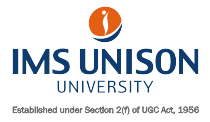Application of Torts Law to Medical Implants: An Analogical Study
Application of Torts Law to Medical Implants: An Analogical Study
The Faculty Research Seminar was conducted by Dr. Shoaib Mohammad on 22nd July 2023, addressing the intriguing topic of "Application of Torts Law to Medical Implants: An Analogical Study." The seminar aimed to explore the legal aspects of medical implant devices through an analogical approach, drawing comparisons to established principles of torts law. Medical implants have become an integral part of modern healthcare, offering patients innovative treatments and improved quality of life. However, as these devices involve potential risks, understanding the legal implications and responsibilities of all stakeholders is crucial.
The session started by providing a concise overview of torts law, explaining its relevance to civil wrongs, liability, and compensation in cases of negligence or harm. The speaker delved into the complexities of medical implant devices and discussed the potential areas of liability that can arise concerning their design, manufacture, marketing, and usage. He presented an Analogical Study Approach. The seminar's core focus revolved around an innovative analogical study, where Dr. Shoaib drew parallels between established torts cases and those pertaining to medical implants. By comparing the legal principles and precedents, he aimed to elucidate potential legal implications specific to medical implants. Several real-life case studies were analysed during the session, each highlighting different aspects of medical implant litigation, including defective product claims, failure to warn, and medical negligence speaker emphasized the importance of adhering to existing legal standards and industry best practices in the development, testing, and marketing of medical implants to mitigate potential legal risks.
Insights and Discussions:
The Faculty Research Seminar generated insightful discussions among attendees, including faculty members, researchers, and students. Some of the key takeaways and insights from the session were: Understanding the significance of analogical reasoning in complex legal cases.
Appreciating the role of torts law in addressing medical implant-related issues, ensuring accountability, and promoting patient safety.
Recognizing the need for continuous research and innovation to strike a balance between medical advancements and legal responsibilities.
Reflecting on the ethical and moral dimensions involved in medical implant usage and the duty of care owed to patients.
Conclusion:
Dr. Shoaib Mohammad's Faculty Research Seminar on the "Application of Torts Law to Medical Implants: An Analogical Study" was a thought-provoking and informative session. The analogical approach employed during the presentation enabled participants to grasp the complexities of medical implant-related litigation and explore the legal aspects from a novel perspective. The seminar was successful in stimulating intellectual discussions and fostering a deeper understanding of the legal implications and responsibilities associated with medical implants. Attendees were left with valuable insights into the intersection of medical technology and the legal framework, emphasizing the importance of further research and collaboration to promote patient safety and innovation in the healthcare industry.
Overall, the seminar proved to be a significant contribution to the ongoing academic discourse on medical law and garnered positive feedback from all participants.

